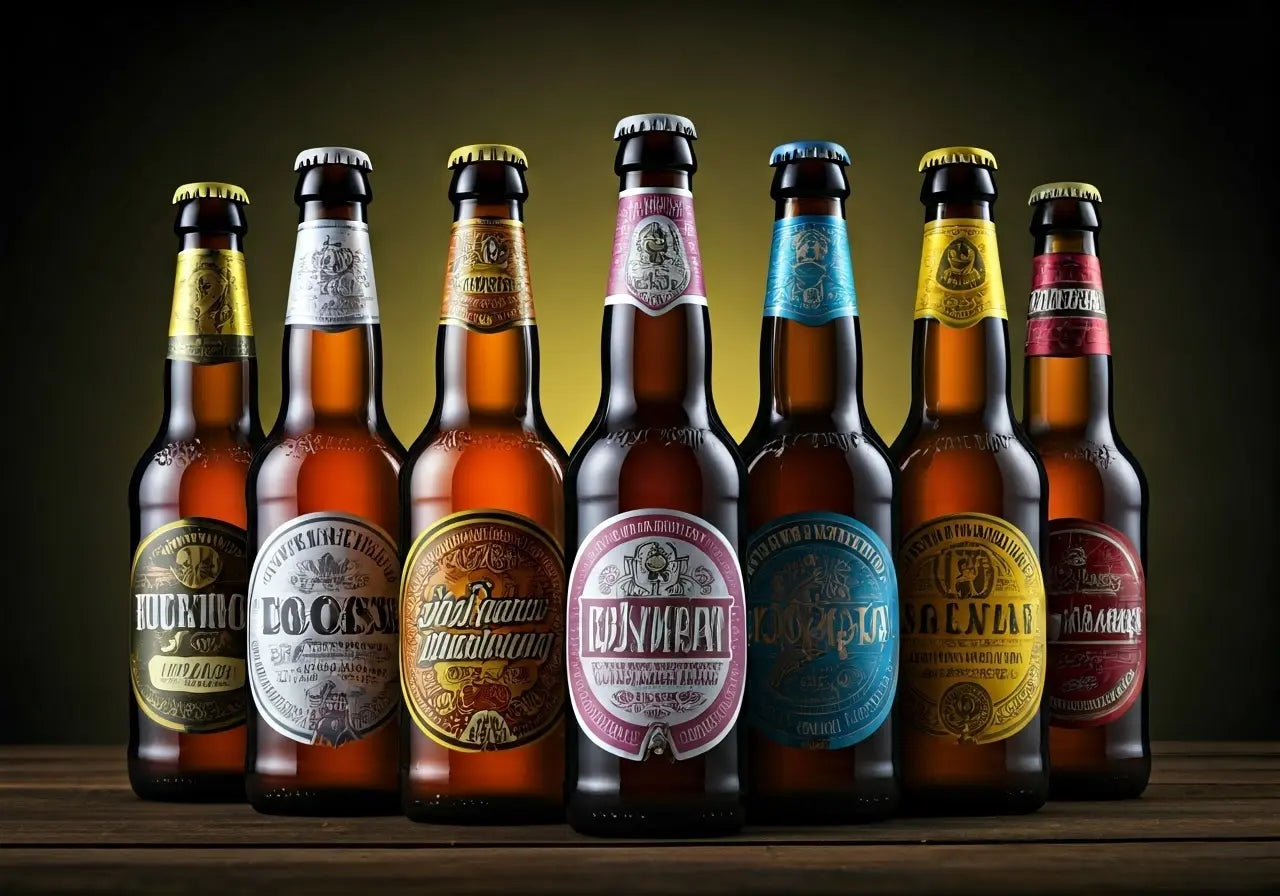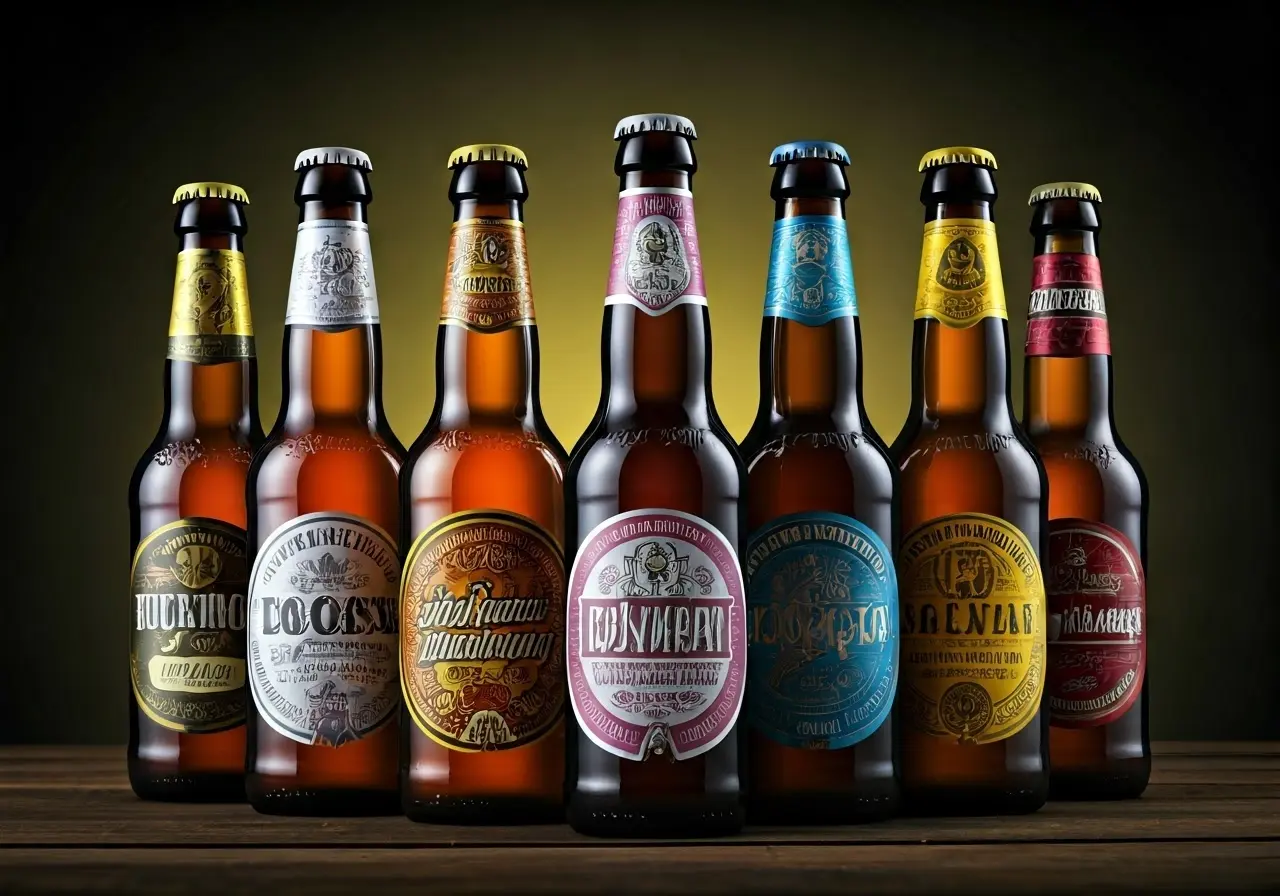
In recent years, the world of non-alcoholic beers has undergone a significant transformation, largely thanks to the rise of artisanal brewing. With a focus on quality ingredients, innovative techniques, and a passion for creating complex flavors, artisanal brewers are redefining what non-alcoholic beers can be. In this blog, we’ll explore how artisanal brewing is causing a revolution in the non-alcoholic beer industry, making it a favorite choice for many.
1. Crafting Quality Over Quantity
Artisanal brewers prioritize quality over mass production, ensuring each batch of non-alcoholic beer receives the attention it deserves. This dedication results in a superior taste experience that stands out in the market. Each brew is crafted with precision, from selecting the finest hops to patiently allowing the flavors to develop over time. The result is a brew that not only satisfies but delights the palate.
Moreover, this approach fosters a deeper connection between the brewer and the final product, akin to the relationship between a chef and their dish. The commitment to quality means that every bottle or can holds a unique story of artisanship and passion. Consumers today are increasingly drawn to products that tell a story and represent a thoughtful approach, making artisanal non-alcoholic beers increasingly appealing.
2. Embracing Sustainable Practices
Many artisanal brewers are dedicated to sustainable practices, using locally sourced ingredients and eco-friendly production methods. This commitment not only benefits the environment but also adds to the appeal of non-alcoholic beers. Implementing such practices can include reduced water usage, minimal waste production, and the utilization of renewable energy sources.
Sustainability is not just a trend but a necessary evolution in brewing, reflecting a broader societal shift towards more environmentally responsible consumption. As awareness grows and more consumers choose eco-friendly options, artisanal brewers see this as an opportunity to not only do good for the planet but also to connect deeply with their eco-conscious audience. This responsible approach often strengthens consumer loyalty and builds a reputable brand image.
Another facet of sustainability is the use of reusable or recyclable packaging. Many breweries are turning to cans over bottles due to their lighter weight and recyclability, which leads to a lower carbon footprint. These measures, while beneficial for the environment, also offer a compelling narrative for marketing non-alcoholic brews to an audience that increasingly values sustainability.
3. Innovative Flavors and Ingredients
Artisanal brewing opens the door to experimenting with a wide range of flavors and ingredients, from exotic fruits to unique spices. This innovation offers beer enthusiasts a new world of taste without the alcohol. Imagine the zesty burst of passion fruit, the aromatic essence of lemongrass, or the subtle warmth of cinnamon—all potentials within the creative arsenal of artisanal brewers.
Such adventurous flavor profiles not only challenge conventional perceptions of what non-alcoholic beers can be but also expand the possibilities for pairing these beverages with different cuisines. Exploring non-alcoholic brews becomes akin to embarking on a culinary adventure, where each sip introduces new flavors and sensations. Artisanal brewers are at the forefront of this exploration, pushing boundaries and setting new trends in the beer industry.
4. Attention to Craftsmanship
Every step in the brewing process is treated as an art, with artisanal brewers pouring their passion and expertise into creating non-alcoholic beers that rival their alcoholic counterparts. This meticulous craftsmanship ensures that despite the absence of alcohol, the final product is anything but lackluster. By focusing on the quality of each ingredient and the intricacies of the brewing process, these brewers ensure a robust flavor profile and satisfying drinking experience.
Craftsmanship in brewing extends beyond just taste. It’s about creating an experience that resonates with drinkers. The detail and care invested in each brew are palpable, inviting beer lovers to savor every moment. This artistry cultivates a deep appreciation for non-alcoholic options, enhancing the overall allure of artisanal offerings and challenging traditional beer drinkers to expand their palates.
5. Catering to Health-Conscious Consumers
With an increasing number of people focusing on health and wellness, the demand for non-alcoholic beers crafted without compromising on taste is on the rise, and artisanal brewers are perfectly positioned to meet this demand. Their ability to blend intriguing flavors with nutritional consciousness sets them apart.
These brews are often lower in calories and free from additives, fitting seamlessly into a healthy lifestyle. Whether you’re looking for a refreshing post-workout beverage or a guilt-free indulgence, non-alcoholic options crafted with care and free from unhealthy ingredients offer a tasty solution. Artisanal brewers consistently meet the expectations of health-conscious consumers, weaving wellness into enjoyable and flavorful experiences.
6. Reviving Traditional Brewing Methods
Artisanal brewers often draw on time-honored brewing techniques, combining them with modern innovations to create unique non-alcoholic beers that pay homage to the rich history of beer-making. By revisiting classic methods such as open fermentation or the use of wild yeasts, these brewers revive forgotten flavors while introducing a contemporary twist.
7. Enhancing Pairing Experiences
The complex flavors of artisanal non-alcoholic beers make them an excellent complement to a variety of foods, enhancing dining experiences for those who prefer to avoid alcohol. With thoughtful palette pairings, these beers can elevate a meal, bringing out unexpected flavors and enhancing each dish’s unique characteristics.
Consider pairing a citrus-infused brew with spicy cuisine or a malt-rich beer with a hearty stew. The creative potential of non-alcoholic beer pairings encourages greater experimentation in the kitchen and at the dining table, inviting a new kind of culinary adventure for those who choose to indulge without the effects of alcohol.
8. Fostering Community and Collaboration
The artisanal brewing community is known for its collaboration and sharing of ideas, leading to exciting collaborations and co-brewing projects that push the boundaries of what non-alcoholic beers can offer. These collaborations often result in innovative brews that capture the strengths of each partner’s unique expertise, producing a product greater than the sum of its parts.
Beyond brewing, the cooperative spirit extends into the local communities. Many artisanal brewers host events, tastings, and workshops that engage their local audience, fostering a sense of connection and shared passion for the craft. This sense of community encourages feedback, energizes creativity, and shapes the direction of future brews.
9. Appealing to a Broader Audience
By creating complex, flavorful non-alcoholic beers, artisanal brewers are attracting a wide range of consumers, from traditional beer lovers to those who seek a sophisticated, alcohol-free option. This inclusive approach opens up the world of beer to those who choose sobriety or wish to moderate their intake.
The diversity in flavor profiles and styles makes non-alcoholic beers appealing not just as a fallback option but as a preferred choice for many. People now see these beverages as an embodiment of enjoyment and sophistication, regardless of their alcohol content.
10. Driving Market Growth
The success of artisanal breweries in producing top-quality non-alcoholic beers is contributing to the overall growth of this segment, making it an increasingly significant part of the beverage industry. Previously niche, the artisanal non-alcoholic beer sector is seeing a surge in demand, driven by its innovation and quality.
As consumer awareness grows and preferences shift, non-alcoholic beers are not only capturing a larger market share but also influencing traditional brewing practices. This trend promises future expansion and diversification, creating new opportunities for brewers and offering more choices for consumers.
11. Setting New Standards of Taste
Artisanal non-alcoholic beers are setting a new benchmark for flavor, challenging perceptions and raising expectations of what non-alcoholic beer can be. Gone are the days when beer without alcohol meant a lack of depth or taste. Today, artisanal brewers pride themselves on delivering full-bodied experiences that satisfy the most discerning palates.
With bold experimentation and dedication, these brews are reshaping how consumers view non-alcoholic options. As more people discover the rich tapestry of flavors available, the demand for high-quality, innovative non-alcoholic beers is predicted to grow, continuing to forge the path for artisanal brands.
12. Breaking Stereotypes
Artisanal brewers are breaking the stereotype that non-alcoholic beers lack complexity and depth, offering instead a diverse menu of flavorful and exciting options. By focusing on craftsmanship and creativity, they counter outdated perceptions and champion a new era of beverage enjoyment.
These brewers are proving that flavor, excitement, and variety are not exclusive to alcoholic brews. By redefining what a beer can be, regardless of its alcohol content, they are changing attitudes and expectations, one inventive pint at a time.

